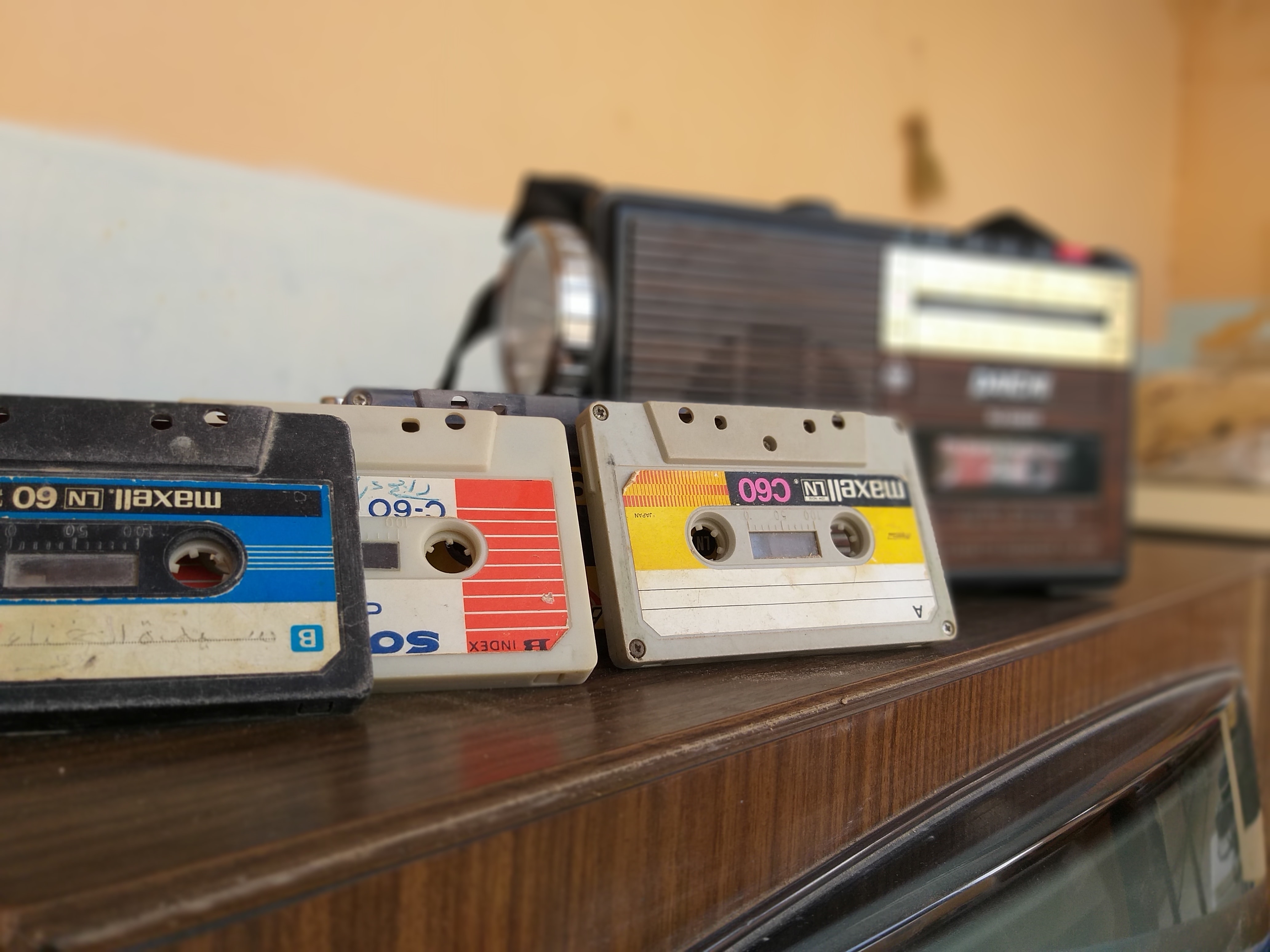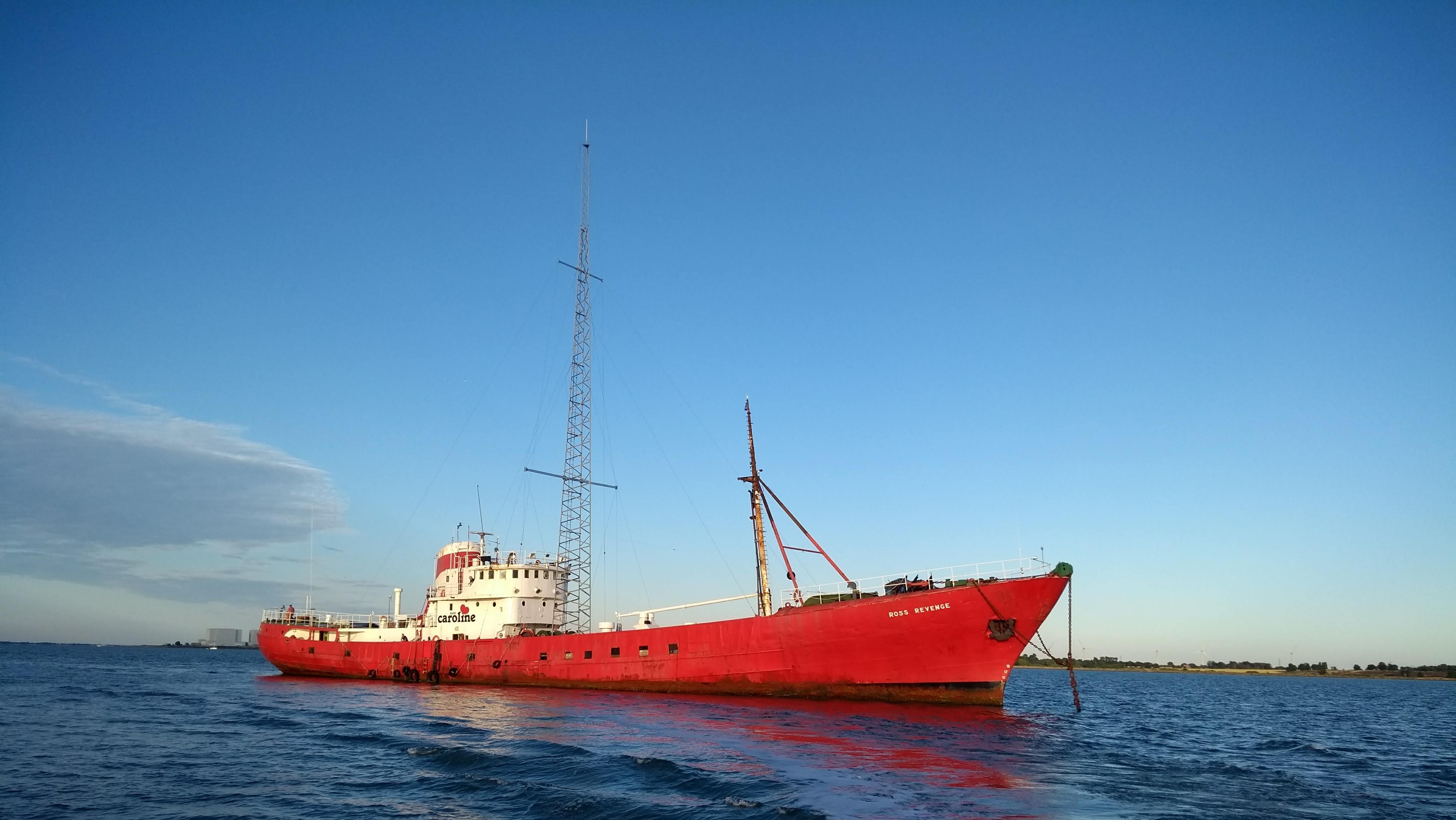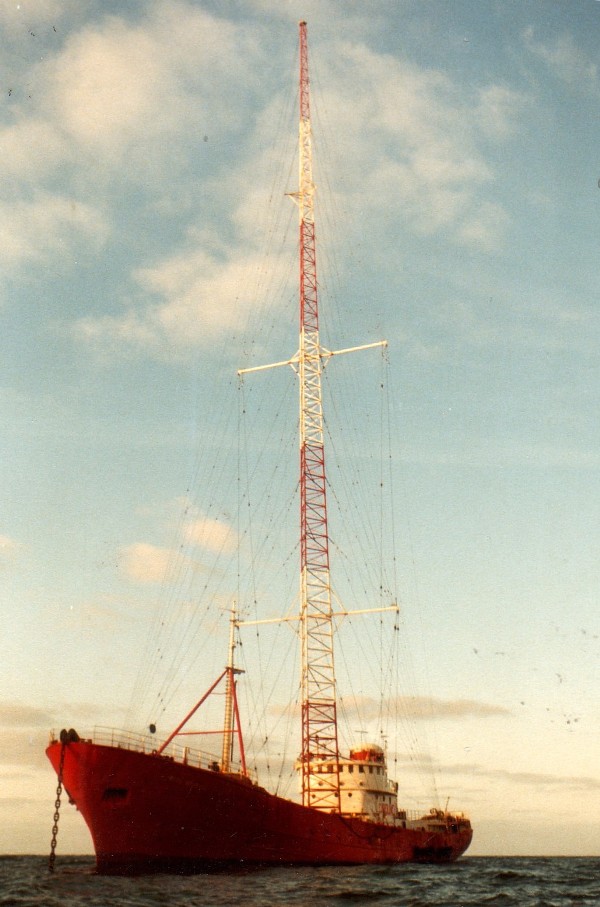The Radio that Rocked and Rolled

Welcome to the United Kingdom of the 1960s. It's the golden era of radio and Rock n’ Roll. However, despite the fact that this remains the greatest time for British pop music, this emerging genre was given only two hours of broadcasting time per week. The Kinks, the Who, The Rolling Stones, even the Beatles were not often played by the government owned and most popular radio at the time, the BBC. Indeed, the famous radio channel relayed mostly classical music, a bit of jazz, news and children’s programs.
Meanwhile overseas, in the United States, the Rock n’ Roll revolution was already happening, with more than 571 radio stations blasting popular music for 24 hours a day. Moreover, the tamest transmission’ choices the BBC was committed to deliver didn’t answer the call, especially from the younger generation, for the fun and frivolity Rock n’ Roll represented. Anyway, several renegades in the U.K were ready to shake things up.

Tired of having only the two primary conservative broadcasting stations, the BBC and Radio Luxembourg, available to them, music fans and nation’s youth wanted something more, something fresh. This is where the story of Radio Caroline began.
Everything started with a savvy Irish entrepreneur, owner of his own club in the London Borough of Soho, Ronan O’Rahilly, who worked in PR for pop-singers, and formed his own record company. As one of the many people disappointed by the broadcast choices at the time, Ronan, 24, decided that he would create a radio station of his own.
Before the launch of Radio Caroline, offshore radio was already a popular concept. With the BBC monopolizing the British airwaves, several stations understood that the only way to participate in the broadcasting landscape would be to go into a spot free from any governance: international waters.
Nonetheless, despite O’Rahilly’s dream, launching the Radio Caroline pirate ship was pretty challenging. First, he needed a boat to get started. Fortunately, the entrepreneur’s father was the owner of a port in Northern Ireland, where Ronan had access to an old passenger ferry. With a little help from his record company plus a boost from various investors, O’Rahilly raised the funds required in order to transform the aged barge into a pirate radio ship.
Ronan O’Rahilly chose the name of his ship inspired by the U.S President John Fitzgerald Kennedy’s daughter, Caroline. For O'Rahilly, the little girl, through her playful relationship with her dad, carried the wind of joy, as well as the entertaining energies he wanted to share.
After anchoring the newly-named Radio Caroline on the Northern Sea, near Essex, the pop music advocate put the word out that he needed DJs for what was proclaimed, “your all-day music station”. Frustrated by the current state of things in the 60s, a group of rock-loving DJs refused to be held back by the legislation and regulations of the time and decided that, if they couldn’t dream of a shift in British broadcasting on land, they would take to the seas instead. United by their love of music, the disc jockeys on the station all wanted to hear and share the music that the BBC refused to play on the air.

On Easter Sunday, 1964, Radio Caroline was introduced to the world, with the song “It’s All Over Now” by an illicit band at the time, The Rolling Stones. Anchored in the high seas, on the Eastern coast of England, the pirate radio revolution was born, defined by the enigmatic hosts that committed themselves to broadcasting Rock n’ Roll songs.
By sticking to off-coast locations, the boat ensured that it could remain outside of the legal reach of the British authorities. Without any restricting broadcasting laws to hold them back anymore, the DJs on boats could give their listeners the authentic Rock n’ Roll music and entertainment they were looking for. Finally, teenagers and Rock n’ Roll fans could fiddle with their radio dials until they heard the songs of their favorite rock bands, away from the restrictions and demands of the BBC and other on-shore regulations.
By 1966, Radio Caroline airwaves had successfully acquired an audience of 23 million loyal listeners, religiously tuning in to the boat. Caroline was claiming enough listeners to take up half of the UK, and the explosion of the station's popularity began to scare the authorities.
The British government decided to ban, for good, Rock n’ Roll on radio. To be more specific, as the popularity of pirate radio continued to grow, the government aimed to shut down off-shore broadcasts. In August 1967 came the Marine Broadcasting Offences Act, designed to officially stop pirate broadcasting. The well-known pirates, loved by millions, were, more than ever, despised by the government. Their outlaw status actually made those Roc n’ Roll pirates even cooler in the eyes of the public. However, the government inhibited their revenues by voting for a law which made any advertising illegal for sea broadcast stations.
The band of renegades, even with their backs to the wall, kept broadcasting pop music, risking it all for the music they loved.

Nonetheless, in March 20, 1980, after years of resistance, a dramatic accident happened. In other words, 'the ship that rocked the world', the most popular of the pirate pop radio stations, Radio Caroline, sank in heavy seas in the Thames Estuary. Even the most beloved ship in history wasn’t invincible.
A few months later, as legacy of the Radio Caroline motley crew, the BBC decided to actually broadcast hours of pop music a day. The Rock n’ Roll pirates changed radio forever, and saved more than a genre of music, the precious idea of how much music means to people.
Long live Rock n’ Roll.





